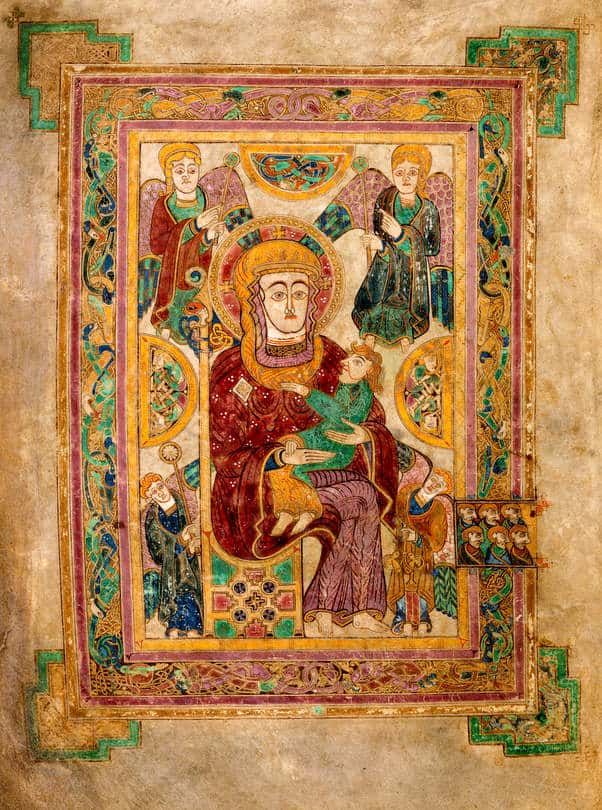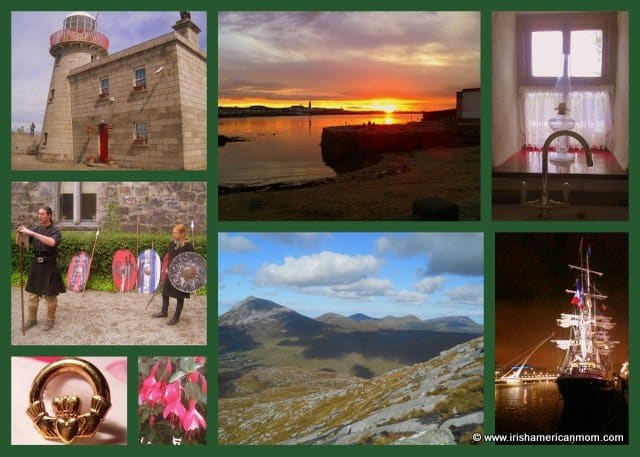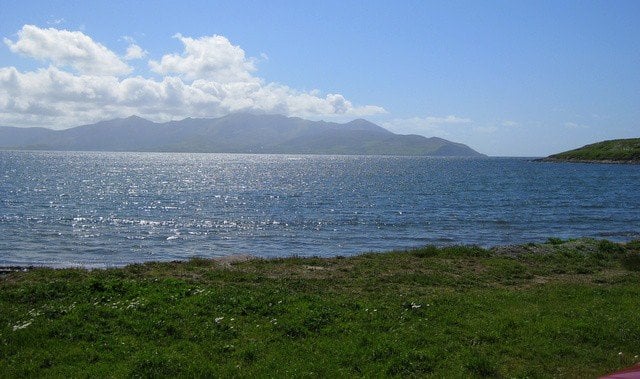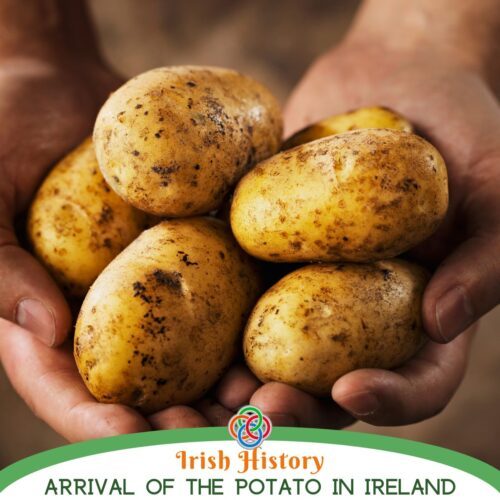The Book of Kells is one of Ireland's most famous cultural treasures, and can be found carefully preserved and on display in Trinity College, Dublin.
The Book of Kells is the world's most famous medieval manuscript and dates from the 9th century. It is a richly decorated copy of the four Gospels and portrays the life of Jesus Christ.

Today, I have some wonderful news to share. If you would like to further explore your Irish heritage and this important medieval artifact, then Trinity College is offering a free online course to help.
Now let me hand you over to the good folks at Trinity to fill you in on all the details. I hope you enjoy examining the lovely illustrations they shared from this priceless treasure ....
FREE Online Course Exploring Irish History Through The Book of Kells:
A new, free, online course developed by Trinity College Dublin will allow learners worldwide to explore the history of Ireland through the remarkable Book of Kells — one of the world's most famous medieval manuscripts.
The ninth-century Book of Kells is one of Ireland’s greatest cultural treasures. A lavishly decorated copy of the four gospels written in Latin, it is set apart from other manuscripts of the same period by the quality of its artwork and the sheer number of illustrations that run throughout the 680 pages of the book.
Housed at the Library of Trinity College Dublin, the Book of Kells is one of the must-sees on the itinerary of visitors to Dublin.
Now members of the public around the world will have the opportunity to learn more about this precious manuscript through a new four-week online course.
Trinity's Partnership with Futurelearn:
The “Book of Kells: Exploring an Irish Medieval Masterpiece” course will commence on October 8th, 2018.
It is run in partnership with Futurelearn, the social learning platform.
The free online course is aimed at anyone with an interest in Ireland, medieval studies, history, art, religion and popular culture.
The Massive Open Online Course (MOOC) has been designed by academics from the School of Histories and Humanities, the School of Religion and staff from the Library.
Using the Book of Kells as a window, the course will explore the landscape, history, theology, and politics of early medieval Ireland and explore how that past is understood in modern Ireland.
Since 2014, Trinity has reached over 70,000 learners from more than 100 countries worldwide through seven free online courses with Futurelearn, the social learning platform.
See more here: https://www.futurelearn.com/partners/trinity-college-dublin

What The Course Will Cover:
Learners on the course will explore the art, theology and materiality of the manuscript and the meanings that it holds.
Each week the course will explore a different side of the Book of Kells; its history, how it was made, interpreting its images, and what the book means for popular culture today.
At the end of the course learners will be able to explain the function and meanings of medieval Irish art; understand how medieval manuscripts were made and engage critically with methodologies and scholarly debates which have shaped interpretations of the period.
The course will also equip learners with knowledge of the distinctive features of the Irish Church in this era and an understanding of the visual, theological and historical characteristics of medieval material culture.
What The Course Professors and Designers Are Saying:
Rachel Moss, Associate Professor in the History of Art and Architecture, and one of the course designers, commented:
“Every year the campus of Trinity fills with expectant visitors, keen to see the world famous Book of Kells for themselves. There are few experiences to beat the experience of gazing on these precious pages, and imagining who else has shared that privilege over the past 1,200 years. The longer you dwell, the more detail reveals itself, and the more intriguing the manuscript becomes.”
“In this course we look forward to being able to share the manuscript with those who have yet to see it for themselves, and share it again with those that have. The course will bring the learner beyond that initial encounter to explore its minute and intricate art, how it was made and what it might have meant to its makers."
"The course will not just dwell in the past. The manuscript is extraordinary in the way in which it has managed to grip the public imagination up to the present day. Despite centuries of scholarship, new research continues to disentangle some of the enigmas that it presents.”

Fáinche Ryan, Assistant Professor of Systematic Theology and Director of the Loyola Institute, added:
“Growing up in Ireland I always knew that the Book of Kells was a great Irish treasure. But it wasn't until I began to study it from the point of view of theology that I began to appreciate the wealth of insight to be gleaned from this important manuscript. It is a text both of great beauty, and of great learning.”
“The more I learn about the Book of Kells the more amazed I am at the scholarship of the people of these islands, perched as it then was at the edge of the Western world. In this course we hope to share something of this 'learned beauty'."
"A particular richness of this course for me has been the opportunity to work with art historians and colleagues in the Library. The intersection of art and theology, and insights into the work of the custodians of the manuscript, adds greatly to the course.”
Register for the course here: http://bit.ly/BookofKellsMOOC

About the Book of Kells:
The Book of Kells is one of the world’s greatest medieval treasures. It is a lavishly decorated copy of the four gospels written in Latin with supporting texts.
It is set apart from other manuscripts of the same period by the quality of its artwork and the sheer number of illustrations that run throughout the 680 pages of the book.
It was intended for ceremonial use on special occasions such as Easter rather than for everyday use.
It is not known exactly when the Book of Kells was written but it is thought that it may have been around 800 AD.
It was written and illustrated by hand using all of carefully prepared materials including vellum, inks and pigments. It is believed that the Book of Kells was written in a monastery founded by St Colum Cille on Iona in Scotland.
Viking raids were widespread at the time of the creation of the Book of Kells and it became too dangerous for the monks to continue living on the island. The monks fled from Iona to their newly established monastery in Kells, Co Meath, around 807AD.
It is not known if the book was written wholly in Iona or if part of it was written in Kells, but we know that it remained in Kells throughout the Middle Ages and eventually, it was placed in the Library of Trinity College by Bishop Henry Jones of Meath in 1661.
Thank You To Trinity College Dublin:
Images and illustrations from the Book of Kells were reproduced with permission from Trinity College.
Many thanks to Fiona Tyrrell, Press Officer for the Faculty of Arts, Humanities and Social Sciences and Trinity College for sharing news of this wonderful course.
Slán agus beannacht,
(Goodbye and blessings)
Irish American Mom
If you enjoyed this guest post, here are some other installments you might enjoy ....
Why Are Irish Americans So Captivated By Ireland
Top Ten Reasons Why Toursists Love Ireland
- From Foreign Tuber to Irish Treasure: The Arrival of the Potato in Ireland
- Oven Roasted Tomatoes
- Foxgloves and Fairies: Ireland’s Magical Summer Bloom
- Fresh from the Garden: Irish Parsley Soup
- Igniting Tradition - The Blaze of Halloween Bonfires
- You Don’t Just Visit Ireland - You Feel It In Your Soul
- Every Man Is Sociable Until A Cow Invades His Garden
- Why the Irish Have a Way with Words: Quotes That Make You Feel Seen













Maureen o Hanlon
Thank you Mairead, what a wonderful amazing online offer
Regards
Maureen.
Irish American Mom
Thanks so much for checking out this online course, Maureen. It really does sound wonderful.
All the best,
Mairéad ☘️☘️☘️
Eileen
This course looks great. Thanks for spreading the word about it here in the United States.
Irish American Mom
Hi Eileen - It's wonderful that Trinity are offering this course free of charge. It sounds wonderful.
Best wishes,
Mairéad ☘️☘️☘️